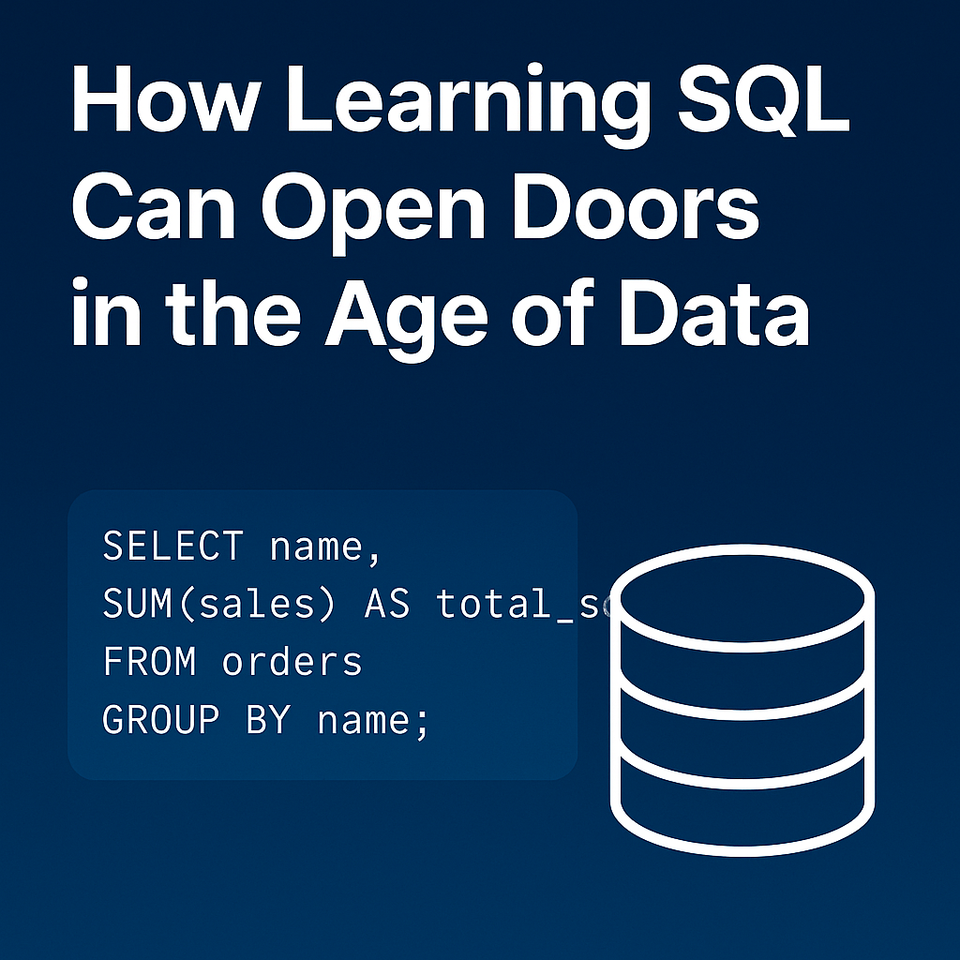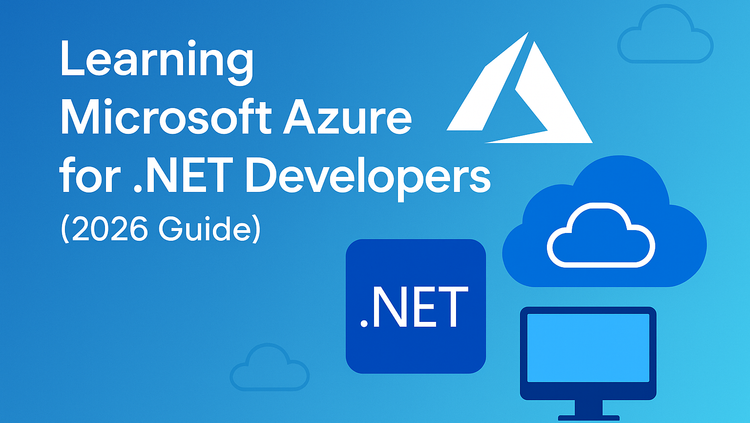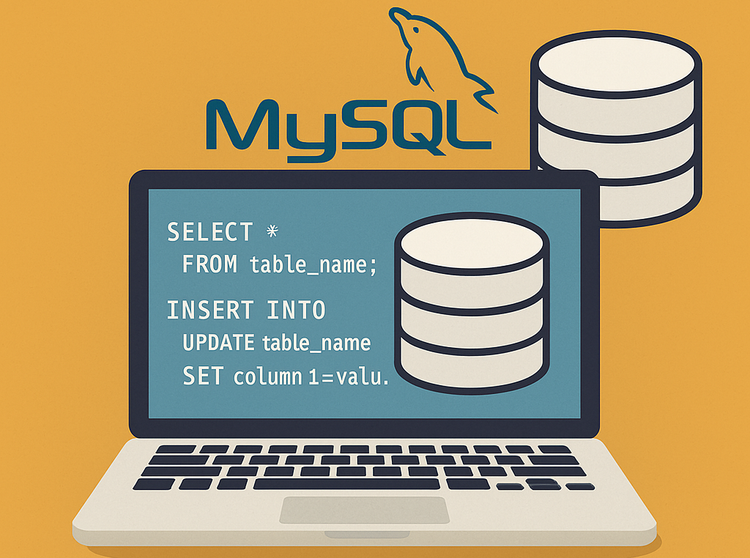How Learning SQL Can Open Doors in the Age of Data

Every click, swipe, and purchase creates data. Every business, from a tiny online shop to global tech giants, is swimming in it. But here’s the catch: only a small percentage of people actually know how to read that data and turn it into something useful.
That’s where SQL (Structured Query Language) comes in.
Think of SQL as the language that lets you talk to data to ask questions, find answers, and uncover stories hidden inside massive databases. It’s not just for developers. It’s for anyone who wants to make smarter decisions faster.
Why SQL Feels Like a Superpower
When I first learned SQL, it felt like discovering a hidden cheat code in business. Instead of waiting for someone else to generate a report, I could pull the numbers myself instantly.
You can type just a few lines of code and reveal insights that might take hours in a spreadsheet.
Here’s an example:
*SELECT productname, SUM(sales) AS totalsales
FROM orders
GROUP BY productname
ORDER BY totalsales DESC;
*
This simple query tells you which products are making the most money. Imagine running that for your business, your team, or your project. The power of clarity is right at your fingertips.

Why Businesses Love SQL Experts
Every company today depends on data: sales figures, customer feedback, performance metrics, web analytics, you name it. When you understand SQL, you’re not just another employee. You become the person who can:
- Find insights before anyone else.
- Back decisions with hard facts.
- Connect business questions to real data.
That’s a game-changer for analysts, marketers, managers, or anyone who wants to stand out.
Real-Life Use Cases
Let’s make it real for a moment.
💡 Data Analyst: Uses SQL to extract daily sales trends directly from a database and feed dashboards in Power BI or Tableau.
💡 Marketing Manager: Runs SQL queries to check which campaigns brought the most customers last quarter.
💡 Small Business Owner: Tracks inventory and customer purchase history without paying for expensive analytics tools.
💡 BI Professional: Builds reports from multiple sources using complex joins and aggregations.
Here’s an example of a simple JOIN connecting two related tables (customers and orders):
SELECT c.name, o.orderdate, o.totalamount
FROM customers c
JOIN orders o ON c.id = o.customerid
WHERE o.orderdate >= '2025-01-01';
That’s a real-world example, something you’d use in reporting, analytics, or even app development.
Why Now Is the Best Time to Learn SQL
The world runs on data, and SQL is the bridge that connects humans to that data.
Whether you’re in finance, tech, education, or healthcare, understanding SQL gives you an edge.
The beauty of it is you don’t need a degree or a background in programming.
You just need curiosity and the proper guidance.
Where to Start
If you’ve been thinking about learning SQL but never took the first step — this is your moment. I’ve created a beginner-friendly SQL course that teaches you everything from scratch, using real examples and simple explanations.
👉 Learn SQL Step by Step (My Udemy Course)
🎓 The Ultimate T-SQL and Microsoft SQL Server Bootcamp.
Or if you prefer to start free, check out my YouTube tutorials, where I walk through real queries and data problems you can try yourself.
🎥 Watch a preview on YouTube:
Finally
SQL isn’t just a language for databases; it’s a skill for thinkers, creators, and problem-solvers. It helps you see beyond the numbers, make smarter decisions, and stay ahead in a data-driven world.
Once you learn SQL, you won’t look at data the same way again.





Member discussion